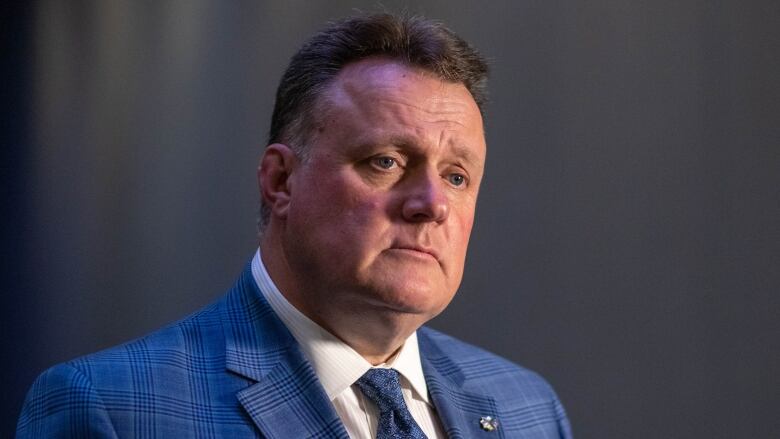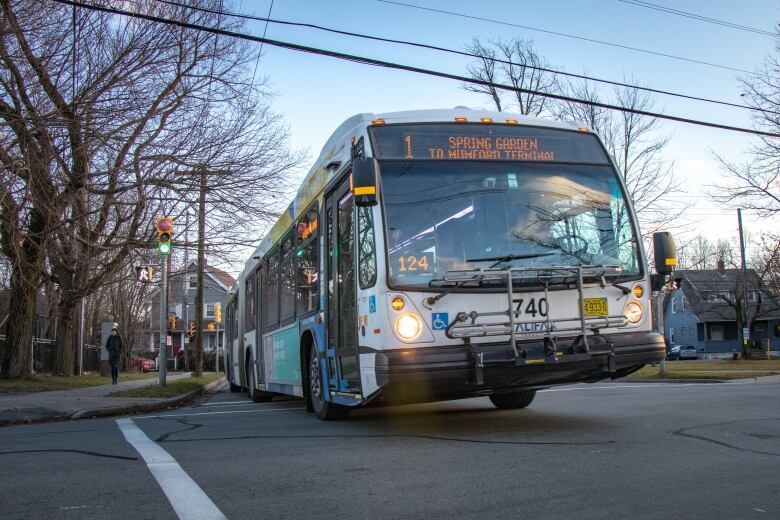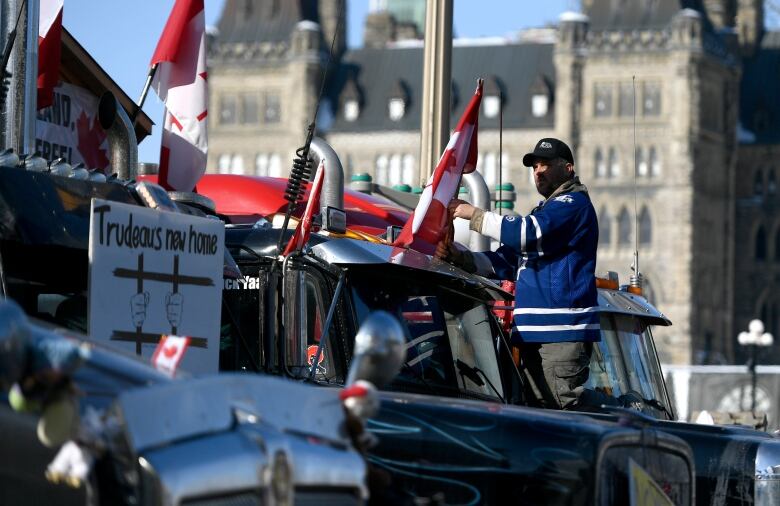Halifax's mayor on protests, housing and the city's transit budget problem
Ongoing protests discussed at big city mayors meeting Monday

Halifax's mayor says city officials are preparing for more protests against public health mandates in this city, and also learning what they can from the disruptive demonstration that's taken over downtown Ottawa for nearly two weeks.
"Whatever we do from a policing point of view, it's criticized for being too heavy-handed or we're not strong enough. That's just a fact of life, but I think you learn from thingsand keeping the downtown open and going is really important in a city like Halifax,"Mayor Mike Savagetold CBC Radio's Information Morning on Tuesday.
Halifax police estimate that on Sundaymore than 1,000 vehicles were part of a protest convoy through the city's downtown.
The ongoingprotests were on the agendaMonday when mayors from Canada's largest cities met virtually with federal cabinet ministers. They also wanted to talk about their cities' priorities as the federal government prepares its 2022 budget.
Savage, the head of the Big City Mayors' Caucus, spoke with Information Morning host Portia Clark about the meeting, and what kind of help Halifax wants to see, two years into the pandemic.
Their conversation has been edited for clarity and length.
Ottawa has put money into rapid housing programs, so when it comes to housing, what are municipalities looking for?
There's no question that the Rapid Housing Initiative has been a tremendous assist in supporting people who are either completely under-housed or haven't got a house at all, and it is rapid. In Halifax, just in the last year and a half, we've approved two tranches of funding, which will provide housing for, I'm guessing, somewhere in the range of 130 to 140 people who are largely homeless, including the hotel in Dartmouth that will be opening upthe first half of this year.
We want that to continue. We think there's a tremendous need for that across the country. Homelessness is an issue in every city in Canada, so we think that's an important piece and it really is a crisis situation.

What can the federal government do for cities, like this one, to support transit systems? Did you talk about howservice reductions are a possibility because of the lost revenue during the pandemic?
Yeah, we did very much. In fact, it was a real push because cities across the country are right now doing their budgets, as we are. We are all looking at transit shortfalls. Transit as an essential service in a pandemic. You know, we can't stop providing transit. Front-line workers can't get to work, the people who keep the economy going and our grocery stores and our pharmacies and lots of other areas, can't get to work. So we have to keep transit going, but of course, a lot of people are slower to use it. We're all building up deficits and we're all planning for a shortfall this year.
Toronto's could be in the range of half a billion dollars. In Vancouver, itcould be $100 million. In our city, it's probably in the range of $10 million, so we either have to cut the service or it goes on the municipal taxpayer. This is a real crisis and we really want action on this one with the federal government, and we're going to have conversations with provincial governments as well.
What more would cities like to see when it comes to net-zero emissions and climate change?
As we come out of COVID, which is a crisis, we can't forget theoverriding crisis of our time, which is the issue of climate change. If we're going to meetCanada's 2030 emissions goals, and if we're going to meet our own very ambitious municipal goals, as well as the ambitious provincial goals that have been outlined, then we need to scale up the investments. We are looking at making a substantial investment in climate change initiatives in our budget.We need to do that, but we cannot do it on our own.

And the issue in front of everyone's face right now arethese protests, the truck convoys. What were the conversations like with your municipal colleagues around that issue coming up in your cities?
Ottawa Mayor Jim Watson joined us yesterday morning and we all expressed our alliance with him and what he and the citizens and businesses of Ottawa are going through, and all cities are going to be impacted by this. We had a protest on the weekend and I expect that there will be more.
We all recognize people have the right to peacefully protest, but we cannot have disruptions to citizens, to businesses. We need to make sure that ambulances and fire vehicles can get where they need to go. The provincial government has expressed their support for keeping streets open and business going, and the rights of citizens to move around the city. So that's what we're going to be keeping an eye on, and we all need to do our part together to get out of this crisis effectively.
With files from CBC Radio's Information Morning Halifax












_(720p).jpg)


 OFFICIAL HD MUSIC VIDEO.jpg)
.jpg)



























































































